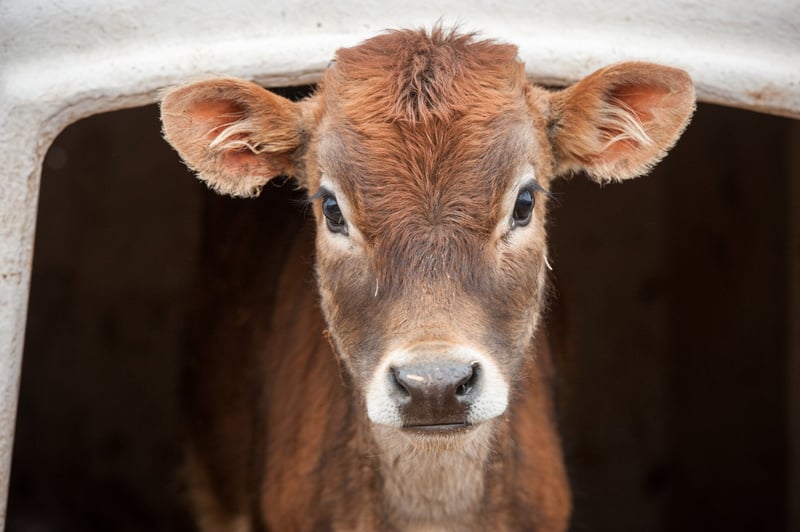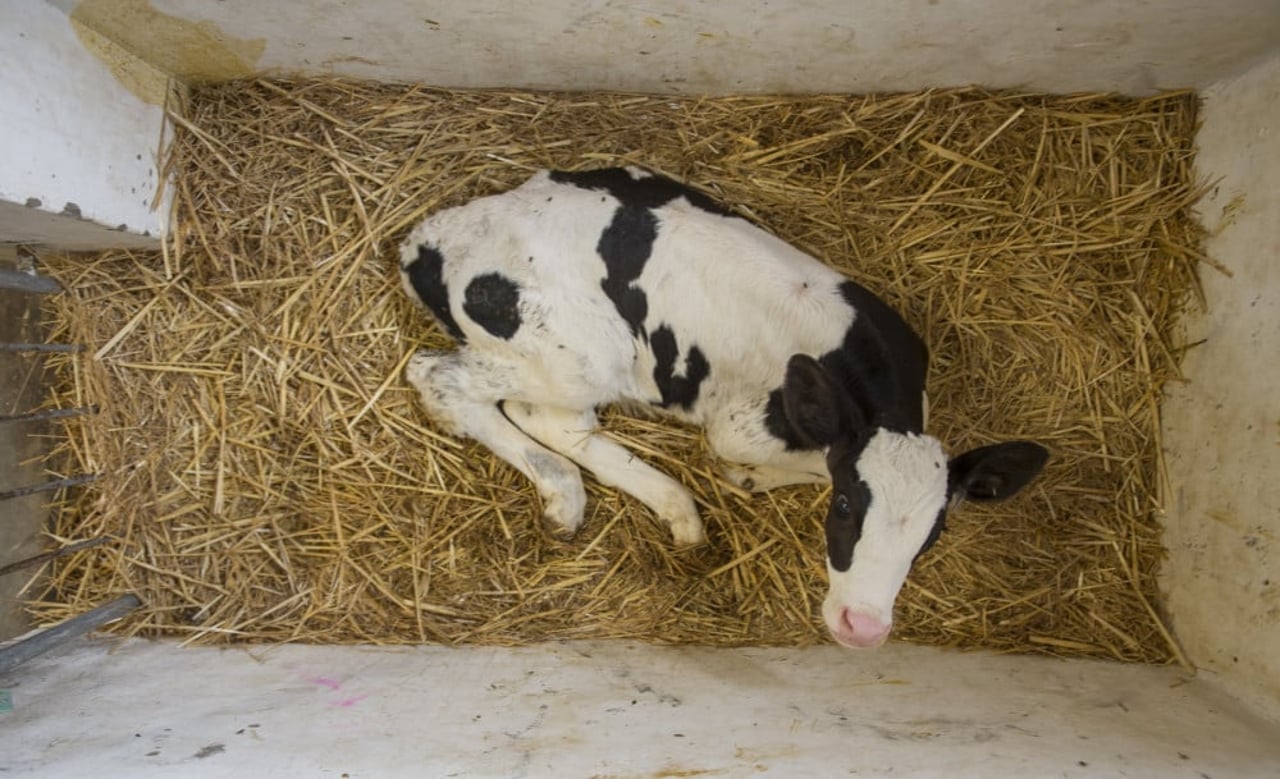
It’s important to call it what it is: meat from baby cows.
Like much of factory farming today, veal is part of a model of production that exploits animals and seeks to maximize profit wherever possible. A deeper look into how it is produced uncovers an extremely gut-wrenching system of abuse and cruelty.
How is veal produced?
In the dairy industry, cows are artificially inseminated and forced to give birth once a year to ensure they produce milk continuously. In a natural environment, mothers would nurse their calves for up to a year and maintain a strong, close bond. Sadly, on factory farms, calves are ripped from their mothers within hours of birth, causing severe distress to both the cow and the calf. Male calves, since they will never produce milk, are either shot after birth or sold to other factory farms to be raised for veal or beef.
As if this fate for baby cows is not traumatic enough, calves raised for veal are kept in restrictive crates or pens that prevent them from moving around freely. This extreme confinement and prevention of exercise is done to create more “lean” meat, but it causes significant stress, discomfort, and health problems for the animals. The crates prevent calves from engaging in natural behaviors, such as exploring their environment, playing, and socializing with other animals. This can lead to boredom, frustration, and stress, which can have a serious impact on their well-being. In addition, the calves may suffer from physical health problems, such as leg problems, eye infections, and respiratory infections, as a result of their confinement and lack of movement.
Calves are often kept in these conditions for the entire time until they are killed for meat at just eighteen weeks.
Calves raised for veal are fed a milk formula that is deficient in iron, which can lead to anemia. This can cause further health problems, such as weakness, fatigue, and a reduced ability to fight off infections, increasing the need for antibiotic use. The high-protein diet and lack of roughage (fibrous foods like grass and hay) can also lead to digestive problems and stress on the liver and kidneys of the baby cows.
How can you help?
We can all work together to reduce the demand for veal and end this cruel system for baby cows. Consuming veal supports a system where baby animals are being taken from their mothers for slaughter to produce an unnecessary animal product.
